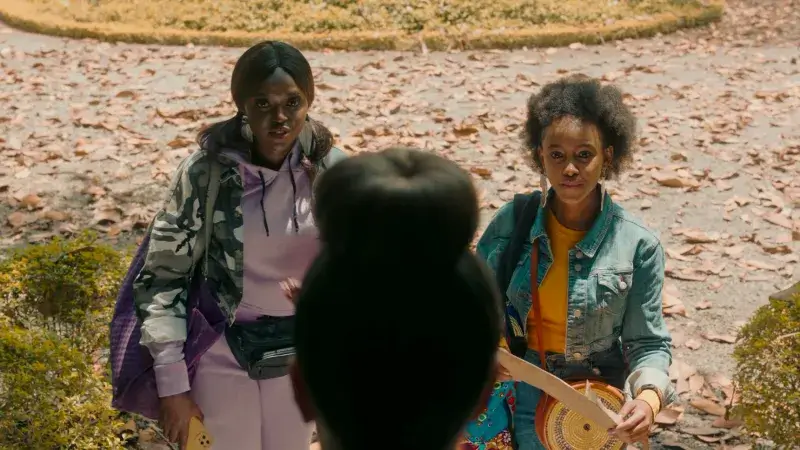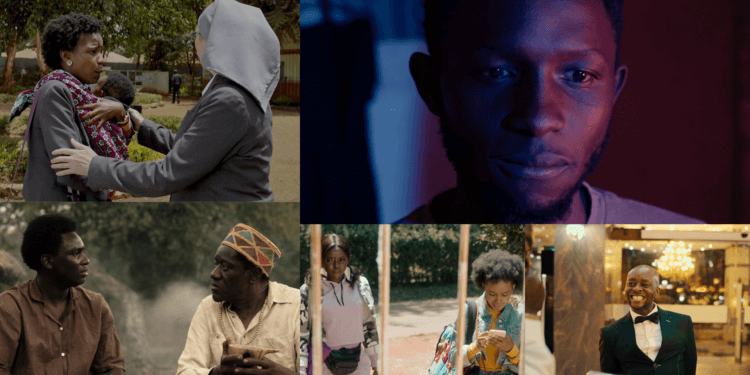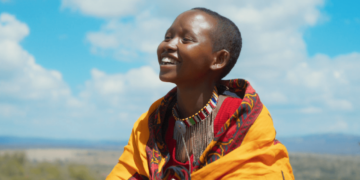Local coverage of the Kenyan film industry has been pretty paltry, but even in thriving industries, short films are mostly enjoyed as niche and generally only reach a broad audience if a big personality or story is attached to it. We intend to be better in that regard, and we’ll start by compiling a list of the five best short films this country has produced over the last year or so. But before we delve in, what’s so special about short films in Kenya?
While there has been a lack of consistency in the quality of Kenyan films, which impedes the very film culture we’re trying to cultivate, our short films are generally more ambitious in their narratives and genre-diverse than our feature films. They’re also technically sound, as per international standards, which makes you wonder why most of our feature-length films don’t share the same level of polish. I asked some of these short filmmakers that same question in this list of 5 best Kenyan shorts to watch in 2023.
Here are, in no part order, the best short films to have come out of Kenya in the last year.
Kanairo
If Nairobi Half Life showed us the possible highs that can be experienced in our city, Kanairo aims to show us the entire slope with a spiky punchline at the bottom. If you’re going to make a movie about depression, this is how you do it. You make a ride out of it, hence, the slope. Kanairo follows a young man, Johnte, as he navigates life in Nairobi while the option of suicide lingers around him. Accompanied by dazzling shots, we follow Johnte through the streets of Nairobi. We begin to look like his shadow even as he goes to the rougher sides of the city. Gradually, things get darker as we see the city for what it is, physically and socially. Then there’s the debts and the general bad vibe of his hood. And then there’s the thoughts and his reflection in the mirror.
Kanairo is impressive in the way it captures the helter-skelter-shoulder-brush energy of Nairobi’s CBD. And its bristling soundtrack implants one even further into the concrete of Nairobi. Cecimercy Wanza, the writer and director, is currently in the process of turning it into a feature film. I asked her how this encapsulated story, which works so completely already as a short, would translate into a feature. “We’ll go deeper into his (Johnte) life, his work and all that. From that scene in the end, we’ll investigate the nuances.”
Wanza revealed that making the short was in reaction to not finding sufficient funding to develop the idea into a feature. So Kanairo was a stepping stone, or proof of concept to sell the idea for something longer set for release in 2024.
Watch Kanario on Vimeo here.
A Guide to Dining Out in Nairobi

Directed by Hugh Melton, A Guide To Dining Out in Nairobi is about a man (played by Yafesi Musoke) who’s tipped by a big baller after washing his car and decides to treat himself to a night out, tuxedo and all, with an extravagant meal at ‘The Grand Royal.’ The bill comes at over a million shillings, so he’s subsequently escorted to the nearest police station. The whole time, you think he’s some intellectually challenged guy until the punchline hits you in the ribs and has you rolling on the floor.
And it’s not just funny, it’s beautiful as well. Some of the transitions have already etched themselves in my mind in how I look at the city at large. It’s Nairobi, sure enough, but photographed the right way—for once. It’s like an extended high-quality production value vine, and it’s the breeziest ten minutes you’ll spend on the internet.
Watch A Guide to Dining Out in Nairobi on YouTube here.
Act of Love
Written by Shelly Gitonga, directed by Eric Mwangi and produced by Shirleen Wangari, Act of Love is one of the least didactic mental health-focused movies I’ve seen in a long time. In this case, a young mother (played by Mwixx Mutinda) struggles to keep up with the day-to-day hell realm of single-parenthood on one income, though in this case, no income at all. It’s a painful movie that then progresses into a very dark one. Without giving anything away, the film has a very Joker-like progression that surprises one in both the direction it takes and in how well it works. Without giving anything away, this ‘Joker scene’ had everyone in my screening dead silent for about thirty seconds. You’ll know it when you see it.
The director, Mwangi, divulged the budget for this project, which had a number of executive backers, as about twenty two thousand euros, and folks, it kind of looks like that sum. For a short film, that’s a lot of money. I know features made on less. But according to Mwangi, “It wasn’t enough, not because it’s little money, it just wasn’t enough to pay people what they’re really worth.”
I asked the producer, Wangari, about the difference in quality between shorts and features in our country. “I attended Docubox shorts, and wow, the quality of short films is better than most features,” she said. “On the other hand, features are where the money is, but it’s not easy to execute, starting with the script.” Making a feature film in Kenya is more business than artistic revelation. The backers hardly care about the content, and it becomes a game of diplomacy as seen in other industries. But this is not a factory line; it’s a dream machine. Or, at least, it’s supposed to be.
Act of Love is available to stream on My Movies Africa.
Grogan’s Lodge

Directed by Isaya Evans, Grogan’s Lodge is a spooky-location type of horror film, with elements of Get Out meets colonialism. It follows two young women looking for employment in a nature-reclaimed lodge where they expect to work as waitresses. They need to pay off their student loans, so we’re told.
As the two leads, Michelle Tiren and Serah Wanjiru play the annoying-preppy-girls in a horror movie trope exceptionally. From the first line, we know who the “final girl” will be, but this isn’t so much a drag than it is a testament to the director’s judgment. It’s a morbidly satisfying and believable conceit as to why these girls, even with every indication that things are not all as they seem, refuse to give up and go home. They just go further and further into hell, and it’s brilliantly entertaining to watch. Grogan’s Lodge isn’t very much horror in the jump-scare sense of the genre, but it’s as unsettling as its inspiration.
Where the River Divides
In his review upon the film’s release, Sinema Focus’ critic Kelvin Kariuki described Where the River Divides as: “… one of the most beautiful films I have ever seen,” saying that the film is careful enough to adhere to the language, traditions, and mannerisms of its time (based on a Luo clan during the 70s), and is visually spectacular. But he found issues with its portrayal of culture versus Western religion, saying, “If this film were to be released in an industry that produces numerous cultural Kenyan stories like Nollywood, I would rest here and give it all my praise. But it doesn’t. Where the River Divides is the first of its kind, and as visually appealing as it is, I find issue with the fact that the first Kenyan cultural story I’ve seen is so blatantly against the culture it so beautifully portrays.”
Granted, the makers of this film were funded by a religious outfit which sought to push their agenda a little more on screen, but I just hate it when films have agendas. More often than not, agendas taint a good story. Famed New Yorker critic Pauline Kael once deliciously said, “Movies that are consciously life-preserving are to be consciously avoided.”
However, Where the River Divides is still a worthy addition to this list. It’s one of the first Kenyan films to capture the experiences of Kenyans immediately after independence – untouched ground for Kenyan film. And for that, it deserves your nod.
Where the River Divides is available to stream on My Movies Africa.











